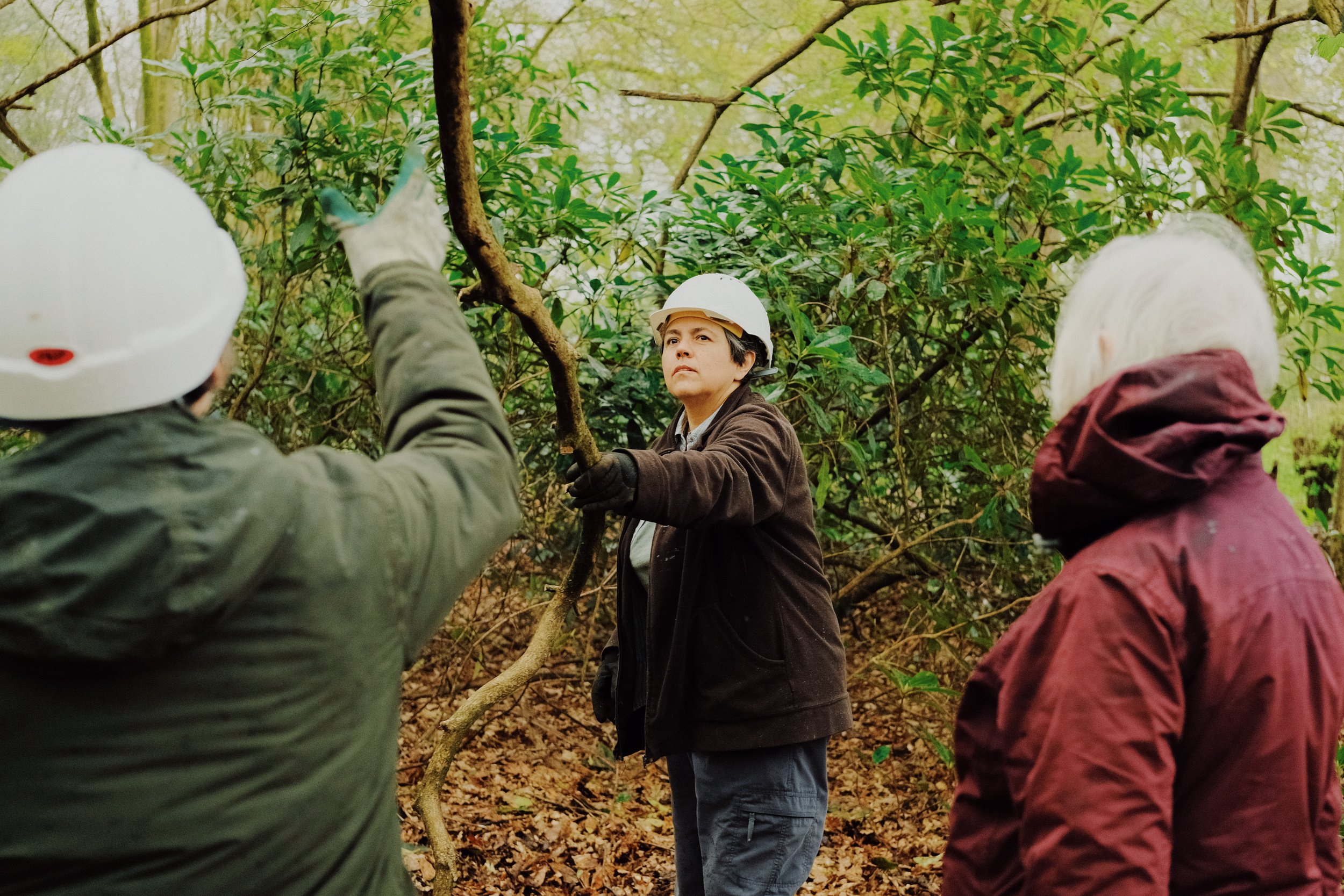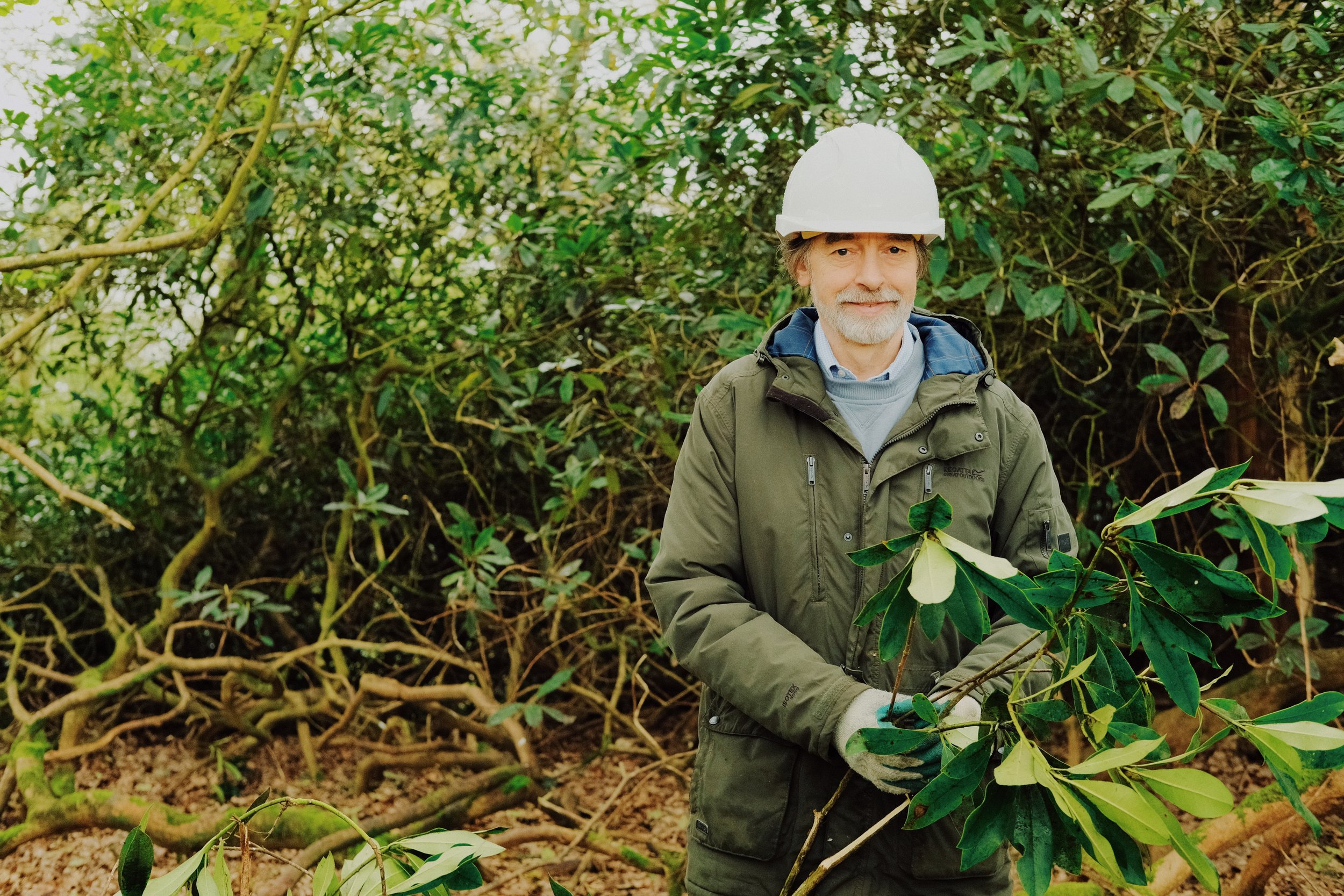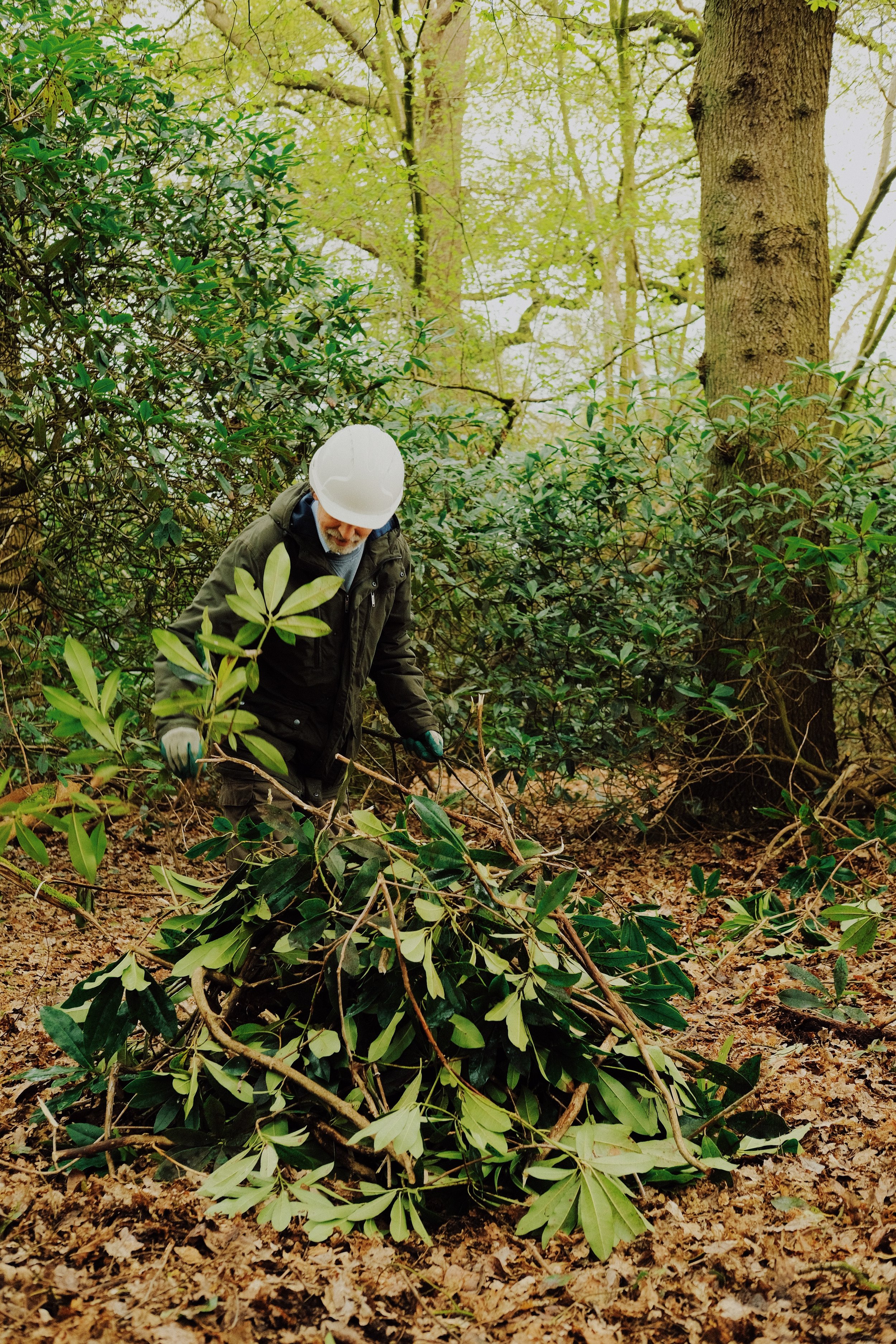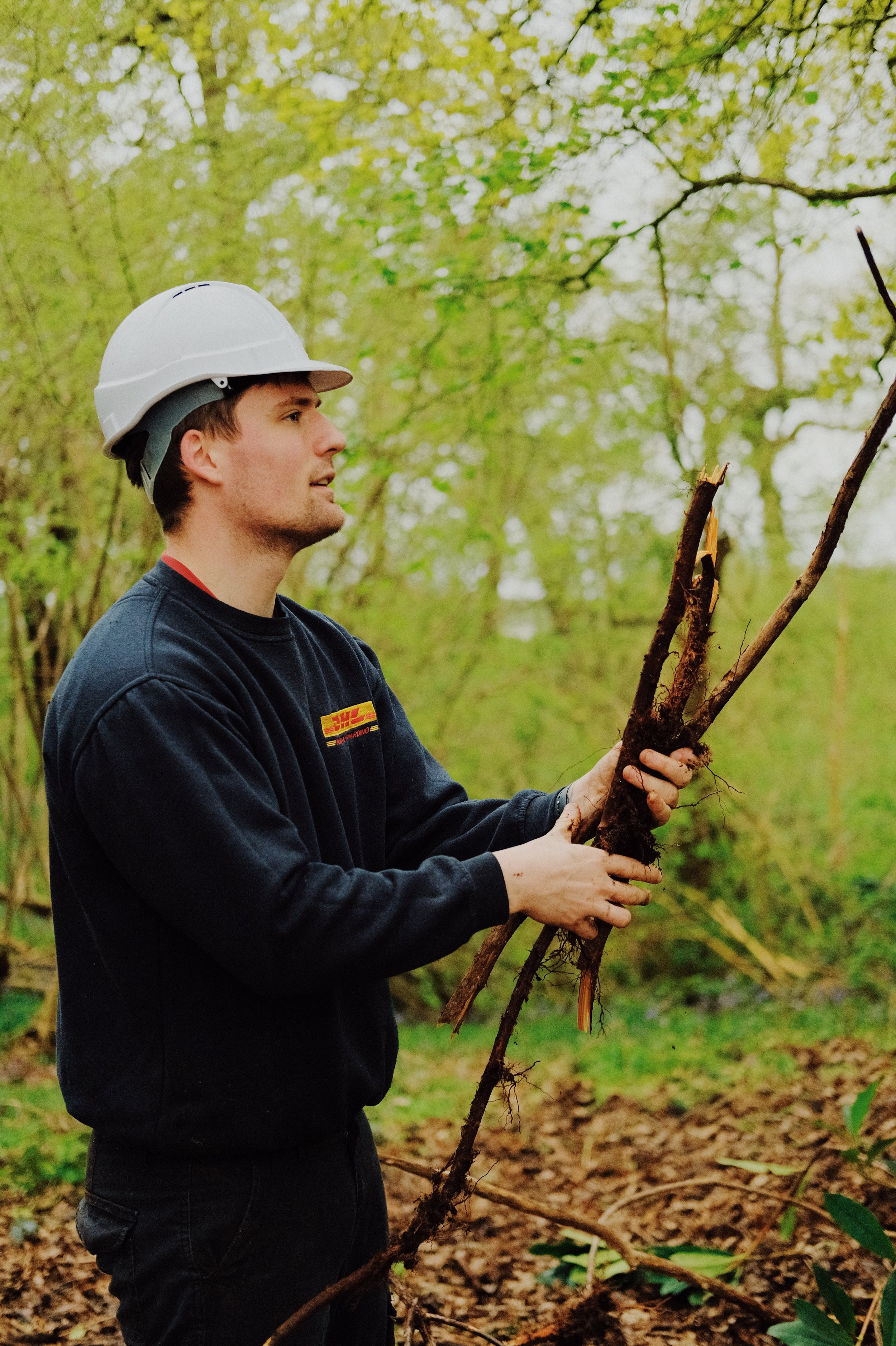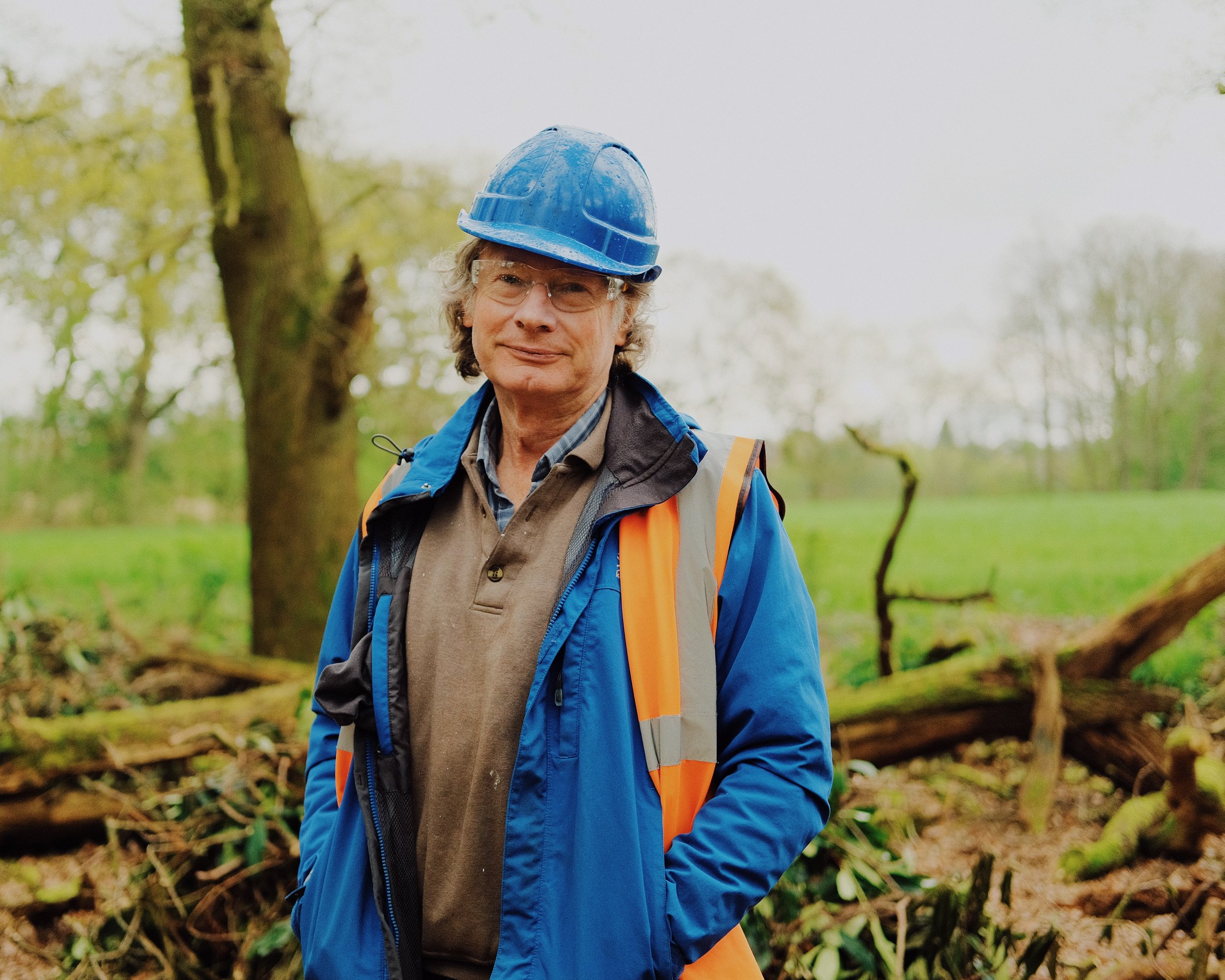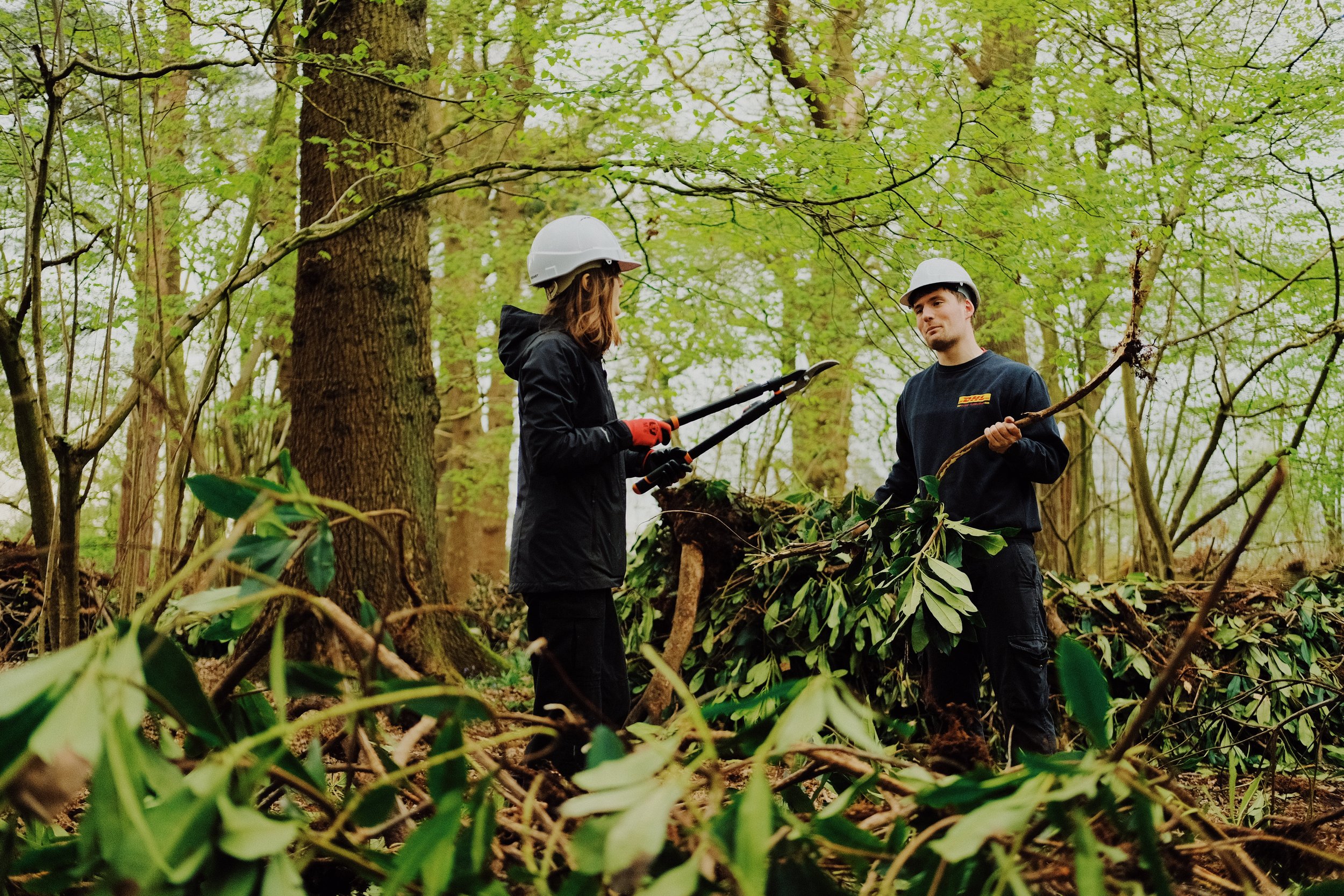Meet the Trafford Wildlife Volunteers: keeping South Manchester wild and green
This group based in Trafford and South Manchester have been hard at work for years trying to protect and improve Manchester’s vital green spaces. Through their enthusiasm for nature, they’ve learnt so much about local wildlife and how to help it bloom.
We caught up with some volunteers on a drizzly morning in Trafford to find out more about who they are, what they’ve been up to and how others can get involved.
“There’s a lot of nature sites in Manchester which are home to rare and important species of plants and animals, and many need some level of human intervention to help them thrive. Nature sites are also important to our own wellbeing - providing places for people to escape and connect with nature.”
How did the volunteer group get started?
Trafford Wildlife is the latest evolution of a group of volunteers that have actively supported improvements to wildlife reserves in Trafford since the 1970s. We have a dedicated team of volunteers who meet up to 3 times a week to carry out various conservation tasks in the Trafford area. The group also sometimes works alongside organisations like the National Trust, TCV, City of Trees and Mersey Rivers Trust, as well as local Friends Of groups.
Our aim is to carry out and promote practical conservation in our local area. The group focuses on practical conservation tasks throughout the year covering invasive species removal, woodland management, Heathland management and litter-picking.
What type of work do you do throughout the year?
In the winter season we are removing invasive Rhododendron, Scrub Birch, Norway Maple and Willow - all of which are fast growing species which can dominate an area.
During the transition from Winter to Spring we are working on tree guard maintenance by removing / replacing plastic tree guards, and clearing mulch and weeds from the ground to improve the saplings survival rate. This also reduces the amount of plastic in the natural environment too!
Over the Summer season we are removing Himalayan Balsam - an invasive non-native species. Once removed, it enables our native plants such as Hogweed, Bramble and Nettle to grow, providing a more varied food store for wildlife.
What are some of the benefits you’ve experienced being part of the group?
Many members of the group are retired, and so it provides people with a way to stay active, connect with nature and connect with others, whilst doing something good for the environment. Being outside in nature is a great way to boost our physical and mental wellbeing. This became especially true throughout the pandemic. The work also provides a great opportunity for volunteers to learn about practical conservation and our local wildlife in Trafford too.
It’s important to preserve and protect nature sites across Manchester to help our local wildlife survive, especially in areas where urban development is putting stress on them. There’s a lot of nature sites in Manchester which are home to rare and important species of plants and animals, and many need some level of human intervention to help them thrive. Nature sites are also important to our own wellbeing - providing places for people to escape and connect with nature.
What does climate action mean to you?
Thinking about climate change and climate action on a global scale can be daunting, and it can seem like something you need experience or expertise with to get involved. But progress can be made on a much smaller scale. Individuals and communities facilitating conversations and organising local action can culminate into significant change. If you don’t know where to start, look for opportunities with local groups and organisations in your area.
How can people get involved?
We run 3 practical tasks each week on Monday, Wednesday and Friday, with an additional task on the second Sunday of each month.
No experience is necessary, and there’s always a range of tasks to suit peoples physical abilities. We do ask that people bring their own tools for a lot of tasks but we often provide spare tools and share things with each other.
We communicate the tasks weekly via Facebook, Instagram, Whatsapp and email. If you’d like to be involved, contact us through our website and someone will be in touch!
You can also check out the volunteer group through Instagram and Facebook!




